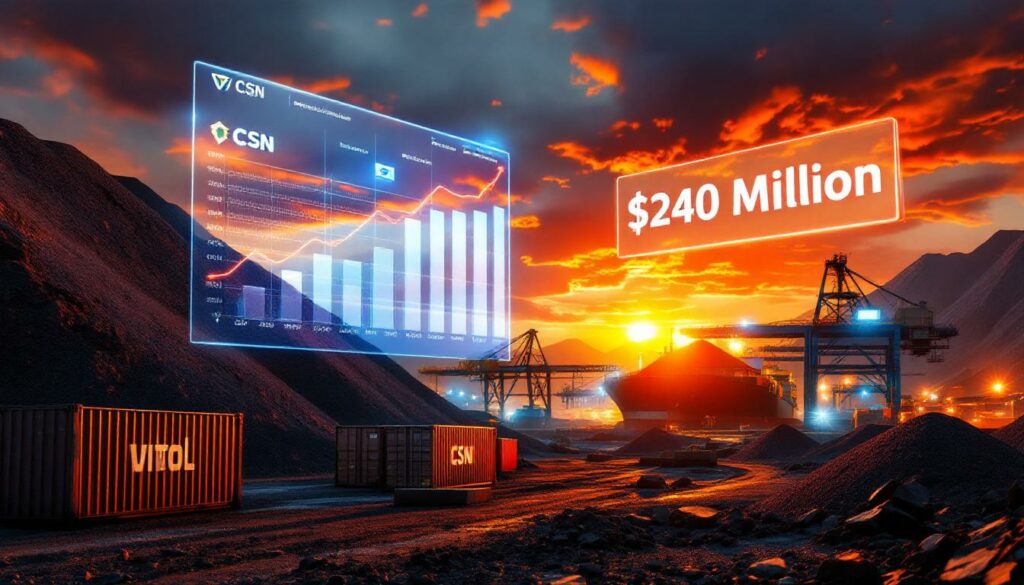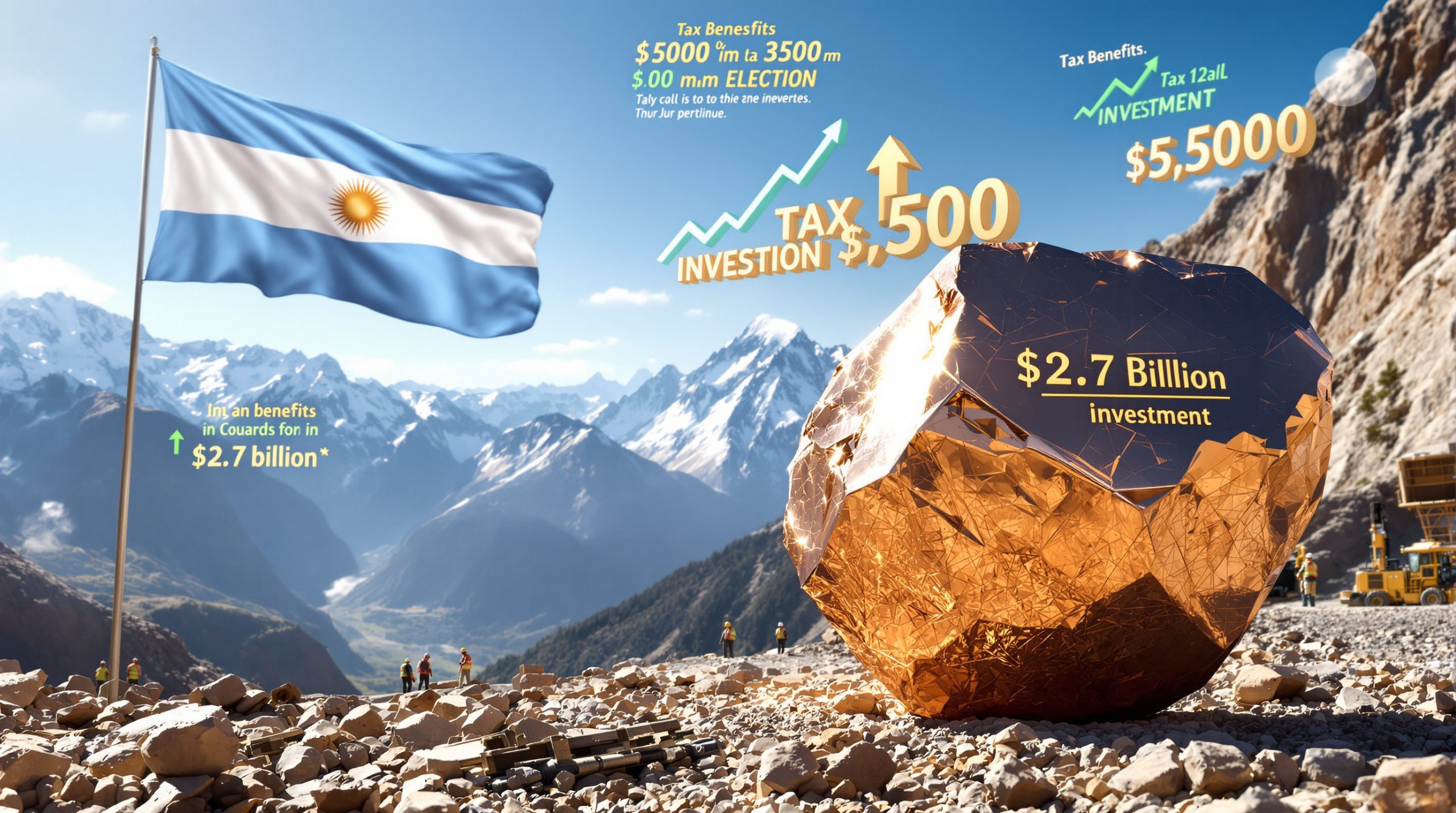Vitol's Strategic $240 Million Iron Ore Deal: Expanding Metals Trading Footprint
Vitol Group, the world's largest independent oil trader, has made a significant move into the metals market with a landmark $240 million iron ore agreement. This strategic expansion represents a major shift in the company's trading portfolio and signals important changes in global commodity markets. Let's explore the details and implications of this deal.
What is Vitol's New Iron Ore Agreement?
Vitol has established its first multi-year metals financing arrangement through a $240 million prepayment facility with Companhia Siderúrgica Nacional SA (CSN), a major Brazilian steel and mining company. This landmark agreement secures the delivery of 6 million tons of iron ore over a four-year period, equating to approximately 1.5 million tons annually between 2025-2029.
The prepayment structure provides CSN with immediate capital while guaranteeing Vitol a steady supply of iron ore at predetermined terms. This arrangement creates a financial buffer against market volatility for both parties.
Derek Wilson, Vitol's Global Head of Steel Raw Materials, expressed enthusiasm about the deal:
"We look forward to expanding our presence in this important market and across the entire steelmaking value chain."
Understanding the Prepayment Facility Structure
The prepayment facility represents a sophisticated financing mechanism that benefits both parties in different ways:
- For CSN: Immediate access to $240 million in working capital, reduced exposure to spot price volatility, and a guaranteed offtake agreement
- For Vitol: Secured supply of iron ore regardless of market conditions, potential price advantages compared to spot purchasing, and establishment of a strategic position in the iron ore market
Unlike traditional project financing that typically funds mine development with complex conditions, this prepayment facility focuses on securing existing production. This provides immediate working capital to CSN while giving Vitol guaranteed offtake without the risks associated with mine development or operation.
Strategic Timing in a Volatile Market
The timing of this agreement is particularly significant given current market conditions. With iron ore price trends experiencing downward pressure due to weakening demand from China's construction sector, the deal provides CSN with financial stability and predictable revenue streams. Current iron ore prices hovering around $106.50/ton (as of July 2025) represent a substantial decline from previous years' highs.
For Vitol, the arrangement secures substantial volumes of a critical commodity at potentially advantageous pricing during a market downturn, positioning the company for significant upside if prices recover in the coming years.
Why is Vitol Expanding into Metals Trading?
Vitol's move into metals trading represents a calculated strategic diversification beyond its traditional energy focus. After years of limited involvement in metals markets, the company is now actively building its presence in this sector.
Building Specialized Expertise Through Strategic Hiring
A key component of Vitol's metals strategy involves recruiting established expertise from industry leaders. The company has been actively hiring metals trading professionals from major competitors including Glencore Plc and Mercuria Energy Group Ltd. These strategic hires bring specialized knowledge in key metal markets including:
- Iron ore trading networks and pricing mechanisms
- Copper price prediction analytics and supply chain relationships
- Aluminum trading strategies and industrial consumption patterns
This talent acquisition approach enables Vitol to rapidly build credibility and capabilities in metals markets without the learning curve typically associated with entering new commodity classes.
Leveraging Trading Infrastructure Across Commodities
Vitol's expansion leverages significant synergies between energy and metals trading:
- Logistical expertise: Applying sophisticated shipping and storage solutions developed for oil to bulk commodities like iron ore
- Risk management systems: Utilizing existing hedging and pricing models with adaptations for metals market dynamics
- Financial capacity: Deploying capital accumulated during highly profitable energy trading years toward metals market opportunities
- Global presence: Activating existing offices and relationships in key mining regions like Brazil, Australia, and South Africa
As one industry analyst noted, "Energy traders leverage infrastructure from oil/gas logistics to disrupt metals, where financing gaps exist." This approach gives Vitol a potential advantage over traditional metals traders who may lack comparable financial resources and global infrastructure.
The Americas Mining Finance Joint Venture
Just prior to the CSN deal announcement, Vitol launched a specialized mining finance joint venture targeting operations throughout the Americas. This initiative creates a complementary structure to support the company's growing metals trading activities.
The joint venture focuses on providing flexible financing solutions to mining companies across North and South America, with particular emphasis on:
- Production prepayments: Similar to the CSN arrangement
- Streaming agreements: Purchasing percentages of future production
- Convertible debt structures: Providing capital with potential equity conversion
- Traditional project finance: Supporting mine development and expansion
This financing entity positions Vitol as both a trading partner and capital provider in the metals space, creating multiple avenues for securing physical commodities.
How Does This Deal Impact the Iron Ore Market?
The entry of major energy traders like Vitol into metals markets is reshaping traditional trading patterns and creating new dynamics for producers and consumers alike.
Changing Competitive Landscape in Iron Ore Trading
Energy traders, flush with capital from recent profitable years, can commit hundreds of millions in advance financing—a capability that many specialized metals traders lack. This creates new competitive dynamics in several ways:
- Capital deployment advantage: Energy traders can offer larger prepayment facilities than traditional metals traders
- Longer-term commitments: Ability to structure multi-year arrangements versus shorter-term deals
- Integrated offerings: Combining trading, logistics, and financing solutions
- Risk appetite: Greater capacity to absorb market volatility due to diversified portfolios
For specialized metals traders, this new competition may force consolidation or specialization in niche markets where larger energy traders have less interest.
Benefits for Iron Ore Producers Amid Market Challenges
For iron ore producers, especially those facing market headwinds from China's weakening construction industry, these prepayment facilities provide crucial operational capital and financial stability. Industry data indicates approximately 30% of global iron ore market types are operating below cash costs at sub-$100/ton prices, making financing arrangements increasingly valuable.
Benefits for producers include:
- Cash flow stability: Guaranteed revenue streams regardless of market fluctuations
- Operational continuity: Ability to maintain production levels despite price pressure
- Investment capacity: Using prepayment capital for efficiency improvements or expansion
- Reduced marketing costs: Simplified sales process with committed volumes
As noted by CSN's finance executives, "Prepayments stabilize revenue amid China-driven volatility," highlighting the value producers place on these arrangements during uncertain market conditions.
Implications for the Steel Value Chain
Derek Wilson's comment about expanding "across the entire steelmaking value chain" signals Vitol's broader ambitions beyond iron ore. This suggests the company may pursue additional strategic positions in:
- Coking coal: The second major input for traditional steelmaking
- Metallurgical products: Including ferroalloys and fluxes
- Scrap metal: Essential for electric arc furnace production
- Finished steel: Trading downstream products to end users
By establishing positions throughout the steel production chain, Vitol could create trading opportunities based on price differentials between raw materials and finished products—a strategy successfully employed by companies like Glencore in other commodity sectors.
What Are the Broader Industry Implications?
Vitol's $240 million iron ore deal represents more than just a single transaction—it signals fundamental shifts in global commodity markets and trading patterns.
Energy Traders Reshaping Metals Markets
The increasing presence of energy trading giants in metals markets is creating new competitive pressures and changing traditional market structures. Key factors driving this trend include:
- Diversification imperative: Energy traders seeking to reduce exposure to fossil fuel markets amid energy transition
- Capital deployment needs: Record profits from volatile energy markets creating pressure to find new investment opportunities
- Risk management synergies: Applying sophisticated trading technologies across commodity classes
- Economies of scale: Leveraging existing global infrastructure and relationships
This shift is forcing traditional metals traders to adapt their business models, either by specializing in niche markets or seeking greater scale through consolidation and partnerships.
New Financing Options for Mining Companies
The entrance of well-capitalized energy traders provides mining companies with alternative financing sources beyond traditional mining finance and capital markets. These new options are particularly valuable for mid-tier producers who may struggle to access conventional project financing.
Advantages of trader financing include:
- Faster execution: Streamlined due diligence and approval processes
- Flexible structures: Customized terms based on specific producer needs
- Limited covenants: Fewer restrictions than traditional bank financing
- Market expertise: Trading partners providing market intelligence and logistics support
For mining companies facing challenging capital markets, particularly for projects with environmental considerations, these alternative financing channels can prove crucial for development and operational continuity.
Global Supply Chain Security Considerations
Strategic commodity traders are increasingly focused on securing long-term supply arrangements amid growing concerns about resource nationalism and supply chain disruptions. This focus on supply security reflects several global trends:
- Resource nationalism: Countries implementing export restrictions on critical minerals
- Geopolitical tensions: Trade conflicts affecting commodity flows
- Environmental regulations: Increasing compliance requirements for mining operations
- Infrastructure constraints: Limited logistics capacity in key producing regions
By securing physical supply through prepayment arrangements, Vitol positions itself advantageously in an environment where access to physical commodities may become as important as price arbitrage opportunities.
FAQs About Vitol's Iron Ore Deal
What is Vitol Group's primary business?
Vitol Group is the world's largest independent oil trader, with a core business focused on energy trading, including crude oil, refined products, natural gas, and LNG. The company handles over 7 million barrels of crude oil and products daily and has annual revenues exceeding $200 billion. While energy trading remains its primary focus, Vitol has been strategically diversifying into other commodity classes, with metals representing a key expansion area.
How does a prepayment facility work in commodity trading?
A prepayment facility involves a trader providing upfront capital to a producer in exchange for future delivery of commodities. The producer receives immediate financing while the trader secures guaranteed supply at predetermined terms, often at favorable pricing compared to spot markets.
These arrangements typically include:
- An upfront payment representing the discounted value of future deliveries
- A specified delivery schedule with volume commitments
- Quality specifications for the commodity
- Pricing mechanisms that may include fixed prices or formulas linked to benchmark indices
- Security arrangements to protect the trader's advance payment
The structure benefits producers through immediate capital access and benefits traders through supply security and potential price advantages.
Why is iron ore significant to Vitol's metals strategy?
Iron ore represents a high-volume, globally traded commodity that complements Vitol's expertise in managing large-scale physical commodity flows. The steel industry's raw materials offer significant trading opportunities due to price volatility and complex global supply chains.
Key factors making iron ore attractive include:
- Market size: Annual seaborne iron ore trade exceeds 1.5 billion tons
- Price volatility: Significant fluctuations creating trading opportunities
- Logistics complexity: Requiring sophisticated shipping and storage solutions
- Industry consolidation: Major producers controlling significant market share
- Strategic importance: Essential input for infrastructure and manufacturing
As a foundational industrial commodity with substantial trade volumes and volatility, iron ore market dynamics provide Vitol with an entry point into metals markets that leverages its existing strengths in logistics and financing.
What other metals is Vitol targeting in its expansion?
Beyond iron ore, Vitol has specifically identified copper and aluminum as key targets in its metals trading strategy. These metals represent major global commodity markets with substantial trading volumes and strategic importance to industrial and energy transition applications.
The focus on these specific metals reflects:
- Copper: Essential for electrification and renewable energy infrastructure
- Aluminum: Critical for lightweight transportation and construction applications
- Market liquidity: Both metals have active futures markets and global trading networks
- Supply constraints: Challenges in developing new mines creating potential price appreciation
- Industrial linkages: Connections to energy markets Vitol already understands
This targeted approach allows Vitol to build specialized expertise in selected metals rather than attempting to compete across the entire metals spectrum simultaneously.
How does this deal compare to traditional mining finance arrangements?
Unlike traditional project financing that typically funds mine development, Vitol's prepayment facility focuses on securing existing production. This arrangement provides immediate working capital to CSN while giving Vitol guaranteed offtake without the risks associated with mine development or operation.
Key differences include:
- Focus on production: Funding operations rather than development capital
- Simplified structure: Fewer covenants and conditions than project finance
- Trading relationship: Emphasis on physical commodity flows rather than investment returns
- Risk allocation: Producer maintains operational risk while trader assumes market risk
- Timeline: Immediate implementation versus lengthy project development cycles
For producers like CSN, prepayment facilities can provide more flexible and accessible financing than traditional project finance, particularly during challenging market conditions when capital markets may be less receptive to iron ore forecast insights and mining investments.
Looking to Invest in the Next Major Mineral Discovery?
Discover how significant mineral findings like Vitol's iron ore deal can create substantial investment opportunities by exploring Discovery Alert's dedicated discoveries page, powered by the proprietary Discovery IQ model that delivers real-time alerts on ASX mineral discoveries. Begin your 30-day free trial today at https://discoveryalert.com.au/discoveries/ to position yourself ahead of the market.




